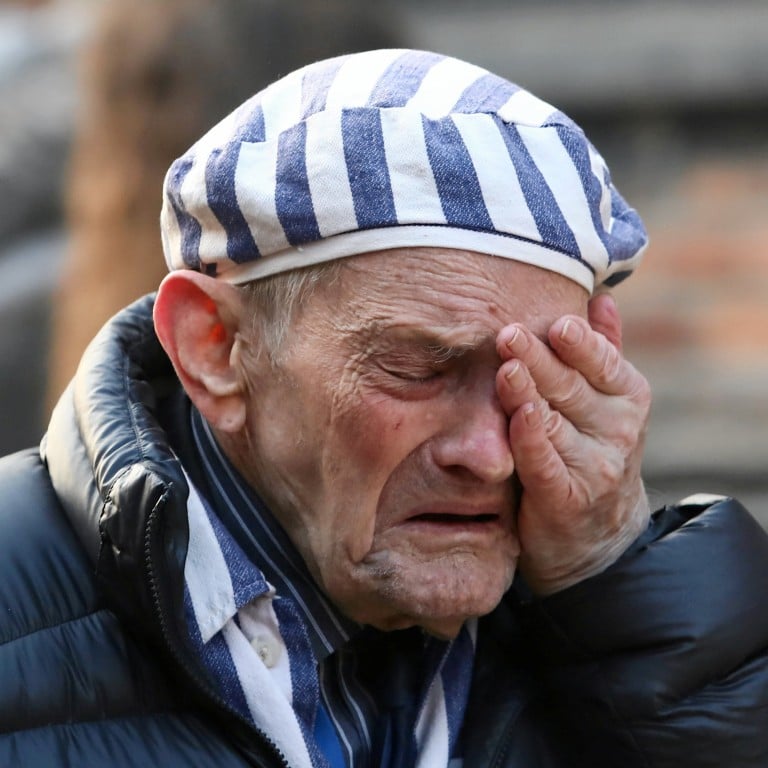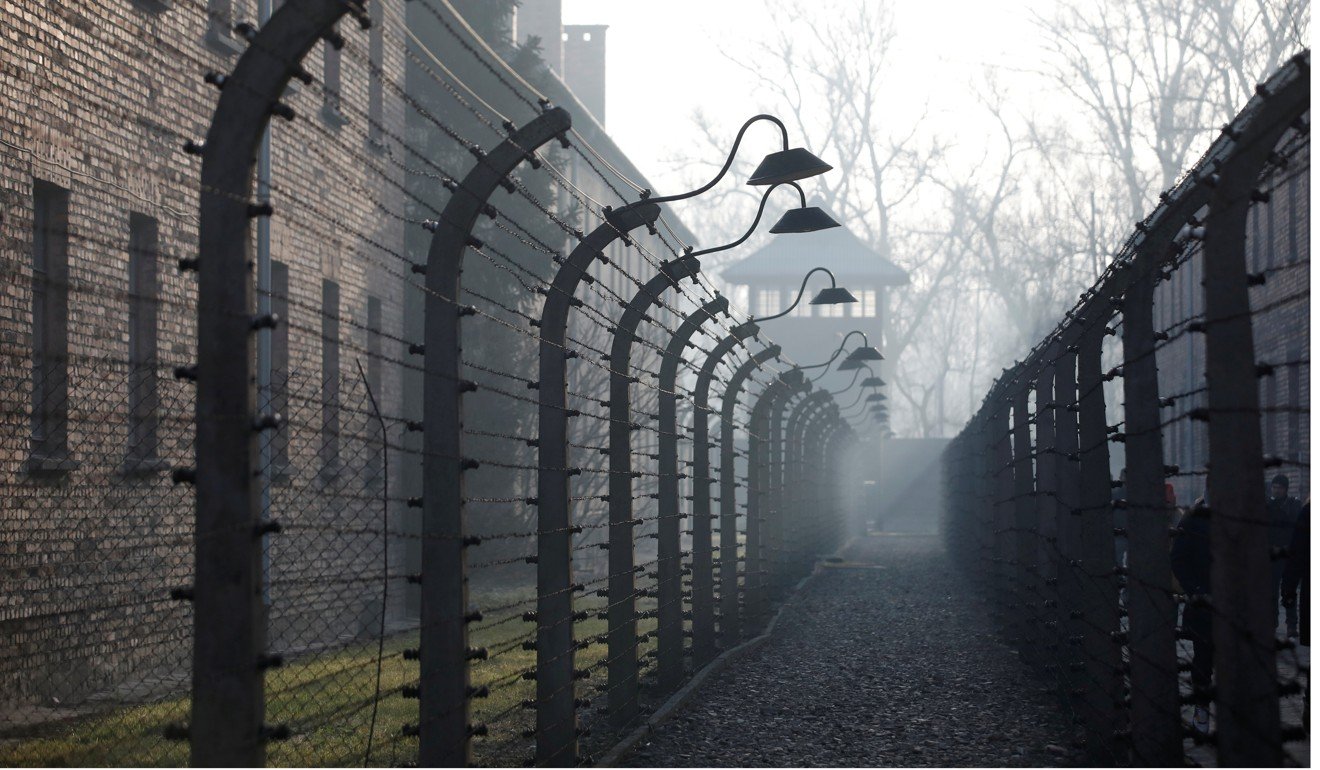
Holocaust survivors return to Auschwitz to mark 75 years since liberation of Nazi death camp
- Over 200 survivors from around the world gathered in Poland to honour the 1.1 million victims of the German Nazi concentration camp
- The survivors also warned against a recent surge in anti-Semitic attacks
Seventy-five years after the liberation of Auschwitz, a dwindling number of elderly Holocaust survivors gathered at the former German Nazi death camp on Monday to honour its more than 1.1 million mostly Jewish victims and to share their alarm over rising anti-Semitism.
Survivors dressed in blue and white striped caps and scarves symbolic of the uniforms prisoners wore at the camp, passed through its chilling “Arbeit macht Frei” (German for “Work makes you free”) black wrought-iron gate.

Accompanied by Polish President Andrzej Duda, they laid floral wreaths by the Death Wall in Auschwitz where the Nazis shot dead thousands of prisoners.
“We want the next generation to know what we went through and that it should never happen again,” Auschwitz survivor David Marks, 93, said earlier at the former death camp, his voice breaking with emotion.
Thirty-five members of his immediate and extended family of Romanian Jews were killed in Auschwitz, the largest of Nazi Germany’s camps that has come to symbolise the six million European Jews who died in the Holocaust.
From mid-1942 the Nazis systematically deported Jews from all over Europe to six camps – Auschwitz-Birkenau, Belzec, Chelmno, Majdanek, Sobibor and Treblinka.
Organisers insist that Monday’s memorial ceremony must focus above all on what survivors have to say rather than the bitter political feuds that have tainted the run-up to the anniversary.
“This is about survivors, it’s not about politics,” Ronald Lauder, head of the World Jewish Congress, said in the Auschwitz camp, now a memorial and state museum run by Poland.
“We see anti-Semitism rising now and we don’t want their [survivors] past to be their children’s future, or their grand children’s future,” he added.

Royals, presidents and prime ministers from nearly 60 countries will attend the ceremony, but no top world leaders, some of whom opted instead to attend a high-profile Holocaust forum in Israel last week seen as rivalling the ceremonies in Poland.
Poland’s President Duda boycotted the Jerusalem forum after he was denied the opportunity to speak there while Russian President Vladimir Putin was given the floor, despite having earlier falsely accused Poland of colluding with German Nazi dictator Adolf Hitler and contributing to the outbreak of World War II.
Duda was to make an address at the Monday ceremony in Auschwitz alongside survivors.
Anne Frank’s stepsister recounts horrors of Auschwitz 75 years after liberation
While the world only learned the full extent of its horrors after the Soviet Red Army entered the camp on January 27, 1945, the Allies had detailed information about Nazi Germany’s genocide against Jews much earlier.
In December 1942, Poland’s then London-based government-in-exile forwarded a document, titled “The Mass Extermination of Jews in German Occupied Poland”, to the Allies.
The document included detailed accounts of the unfolding Holocaust as witnessed by members of the Polish resistance, but drew disbelief and only muted reactions from the international community.
To inform the Allies, Polish resistance fighters Jan Karski and Witold Pilecki famously risked their lives in separate operations to infiltrate and then escape from Nazi death camps and ghettos in occupied Poland, including Auschwitz.

Regarded as exaggeration and Polish war propaganda, “a lot of these reports were simply not believed”, said renowned Oxford historian Professor Norman Davies.
Despite “strong demands” by the Polish and Jewish resistance for the Allies to bomb the railways leading to Auschwitz and other death camps, “the military’s attitude was ‘we’ve got to concentrate on military targets, not on civilian things’. One of the targets that the [British] military did bomb was a synthetic fuel factory near Auschwitz” in 1943-44, he added.
Prince Charles appears to snub Mike Pence in viral video
Although Allied warplanes flew over the death camp itself, no orders were given to bomb it.
“It was one of the biggest crimes committed by those that were indifferent, because they [the Allies] knew what was happening here, they could have done something about it and they deliberately didn’t,” said Auschwitz survivor David Lenga, 93, standing next to a barbed wire fence inside the former camp.
“People of this world need to be educated about the consequences when they become indifferent to evil; if you let evil raise its ugly head, this (the Holocaust) is exactly what is going to happen,” said Lenga, a Polish Jew who now lives in California.

Auschwitz-Birkenau was the largest of all Nazi death and concentration camps and the one where most people were killed, primarily European Jews, but also Roma, Soviet prisoners of war and Poles.
Operated by the Nazis from 1940 until 1945, Auschwitz was part of a vast network of camps across Europe set up for Hitler’s “Final Solution” of genocide against the estimated 10 million Jews in Europe.

.png?itok=arIb17P0)